
Ali Shariati Mazinani was an Iranian revolutionary and sociologist who focused on the sociology of religion. He is held as one of the most influential Iranian intellectuals of the 20th century, and has been called the "ideologue of the Islamic Revolution", although his ideas did not end up forming the basis of the Islamic Republic.

The University of Tehran is a Collegiate university and the oldest and most prominent Iranian university located in Tehran, Iran. Based on its historical, socio-cultural, and political pedigree, as well as its research and teaching profile, UT has been nicknamed "The Mother University [of Iran]". In international rankings, UT has been ranked as one of the best universities in the Middle East and is among the top universities of the world. It is also the premier knowledge producing institute among all OIC countries. Tehran University of Medical Sciences is in the 7th ranking of the Islamic World University Ranking in 2021. The university offers more than 111 bachelor's degree programs, 177 master's degree programs, and 156 PhD. programs. Many of the departments were absorbed into the University of Tehran from the Dar al-Funun established in 1851 and the Tehran School of Political Sciences established in 1899.

Mohammad Khatami is an Iranian reformist politician who served as the fifth president of Iran from 3 August 1997 to 3 August 2005. He also served as Iran's Minister of Culture from 1982 to 1992. Later, he was critical of the government of subsequent President Mahmoud Ahmadinejad.

The Reformists are a political faction in Iran. Iran's "reform era" is sometimes said to have lasted from 1997 to 2005—the length of President Mohammad Khatami's two terms in office. The Council for Coordinating the Reforms Front is the main umbrella organization and coalition within the movement; however, there are reformist groups not aligned with the council, such as the Reformists Front. Masoud Pezeshkian, a reformist, was elected president following the 2024 Iranian presidential election, and was subsequently approved by the Supreme Leader on the 28th of July, having been inaugurated two days afterwards in Tehran.
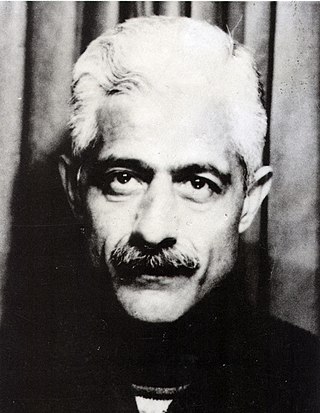
Seyyed Jalāl Āl-e-Ahmad was a prominent Iranian novelist, short-story writer, translator, philosopher, socio-political critic, sociologist, as well as an anthropologist who was "one of the earliest and most prominent of contemporary Iranian ethnographers". He popularized the term gharbzadegi – variously translated in English as "westernstruck", "westoxification", and "Occidentosis" – producing a holistic ideological critique of the West "which combined strong themes of Frantz Fanon and Marx".

Mohammad Reza Aref is an Iranian engineer, academic and reformist politician who is the eighth and current first vice president of Iran since 2024, under President Masoud Pezeshkian. He is also currently member of the Expediency Discernment Council since 2002.

Shahid Beheshti University (SBU), originally founded as the Melli University, is a public research university in Tehran, Iran. The university offers programs at Bachelor's, Master's and Ph.D. levels.

Abdolkarim SoroushPersian pronunciation:[æbdolkæriːmsoruːʃ]), born Hossein Haj Faraj Dabbagh, is an Iranian Islamic thinker, reformer, Rumi scholar, public intellectual, and a former professor of philosophy at the University of Tehran. He is among the most influential figures in the religious intellectual movement of Iran. Soroush is currently a visiting scholar at the University of Maryland in College Park, Maryland. He was also affiliated with other institutions, including Harvard, Princeton, Yale, Columbia, the Leiden-based International Institute as a visiting professor for the Study of Islam in the Modern World (ISIM) and the Wissenschaftskolleg in Berlin. He was named by Time magazine as one of the world's 100 most influential people in 2005, and by Prospect magazine as one of the most influential intellectuals in the world in 2008. Soroush's ideas, founded on relativism, prompted both supporters and critics to compare his role in reforming Islam to that of Martin Luther in reforming Christianity.

Iran has a network of private, public, and state-affiliated universities offering degrees in higher education. State-run universities of Iran are under the direct supervision of Iran's Ministry of Science, Research and Technology and Ministry of Health and Medical Education. According to article 3 of the Constitution of the Islamic Republic of Iran, Iran guarantees "free education and physical training for everyone at all levels, and the facilitation and expansion of higher education." IANI representatives say that academics in Iran are "ultimately directed by the regime and military when it comes to specific areas of research". Rana Dadpour, who taught at an Iranian university, said that certain areas of research are directed by the Islamic Revolutionary Guard Corps and could be employed for "surveillance or military purposes".

The Iranian Research Institute of Philosophy is a public research institute in Tehran, Iran.

Mohammad Mojtahed Shabestari is an Iranian philosopher, theologian, hermeneutist and former professor at University of Tehran. He is noted for his idea that "religion-in-itself" is perfect, but not all-encompassing, i.e. it does not possess the answer to every question in life. Formerly a political activist and MP, he retired himself from politics in 1984.
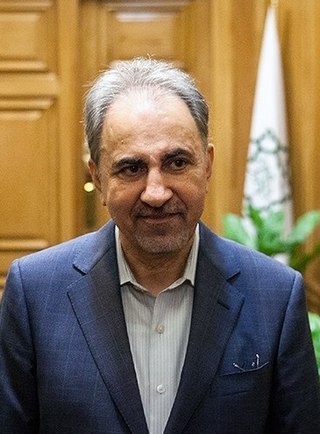
Mohammad-Ali Najafi is an Iranian mathematician and reformist politician who was the Mayor of Tehran, serving in the post for eight months, until April 2018. He held cabinet portfolios during the 1980s, 1990s and 2010s. He is also a retired professor of mathematics at Sharif University of Technology.
Intellectual movements in Iran involve the Iranian experience of modernity and its associated art, science, literature, poetry, and political structures that have been changing since the 19th century.

Ebrahim Asgharzadeh is an Iranian political activist and politician. He served as a member of the 3rd Majlis from 1988–1992 and as a member of the first City Council of Tehran from 1999–2003. His career in politics started as one of the leaders of the group Muslim student followers of the Imam's line that took over the American embassy and held American embassy staff hostage for 444 days.
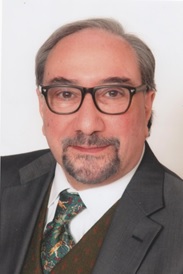
Homa Katouzian is an economist, historian, sociologist and literary critic, with a special interest in Iranian studies. Katouzian's formal academic training was in economics and the social sciences but he concurrently continued his studies of Persian history and literature at a professional academic level. He began studying the life and works of the modern Persian writer, Sadeq Hedayat, and that of the Prime Minister of Iran in the early 1950s, Mohammad Mosaddeq, while still a faculty member in the department of economics at the University of Kent at Canterbury. Having taught economics at universities in Britain and other countries for eighteen years, he took voluntary retirement in 1986 to devote his entire time to Iranian studies. In recent years, he has been teaching and writing on classical Persian literature, in particular the 13th-century poet and writer, Sa‘di. Currently based at the University of Oxford, Katouzian is a member of the Faculty of Oriental Studies and the Roshan Institute Academic Visitor in Iranian Studies at St. Antony's College, where for thirteen years he edited the bimonthly Iranian Studies, the journal of the Association for Iranian Studies. He is editor of the International Journal of Persian Literature, and co-editor of Routledge's Iranian studies book series. He is also a former member of the editorial board of Comparative Studies of South Asia, Africa and the Middle East and Comparative Economic Studies.

Muhammad Khatami's tenure as the fifth president of Iran began with his inauguration on 3 August 1997 to 3 August 2005.
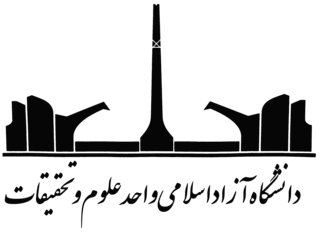
The Islamic Azad University, Science and Research Branch is a private research university located in Tehran, Iran. This university is ranked 647 in the world, 379 in research, 416 in innovation and 231 in social. [1] Tehran Science and Research Unit is located next to the central organization of Islamic Azad University. This is the independent comprehensive university and the best and largest Islamic Azad University[2] and has research and laboratory centers[3] specializing in educational fields at the undergraduate, master's and doctorate levels, and professionals. More than 50,000 students are offered [4] Many figures and university professors are graduates of this university unit. In academics, there are more than 1000 full-time, part-time and visiting professors in various fields.
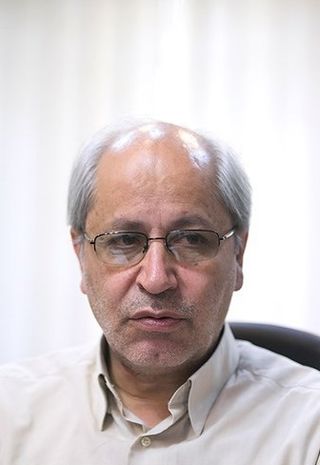
Masoud Nili is an Iranian academic and economist. He was an economic advisor to President Hassan Rouhani from 2013 to 2017, and was his economical aide from 2017 to 2018.

The Iranian Enlightenment, sometimes called the first generation of intellectual movements in Iran, brought new ideas into traditional Iranian society from the mid-nineteenth to the early twentieth century. During the rule of the Qajar dynasty, and especially after the defeat of Iran in its war with the Russian Empire, cultural exchanges led to the formation of new ideas among the educated class of Iran.The establishment of Dar ul-Fonun, the first modern university in Iran and the arrival of foreign professors, caused the thoughts of European thinkers to enter Iran, followed by the first signs of enlightenment and intellectual movements in Iran.
Mohammad Rasekh is an Iranian lawyer and researcher and professor of the Department of Public Law at the Faculty of Law of Shahid Beheshti University and a member of the Ibn Sina Scientific Research Institute. In 2010 and 2017, he was recognized as a model researcher at Shahid Beheshti University. Also, the book History of Islamic Legal Theories, translated by him, won the Book of the Season Award in 2008.

















